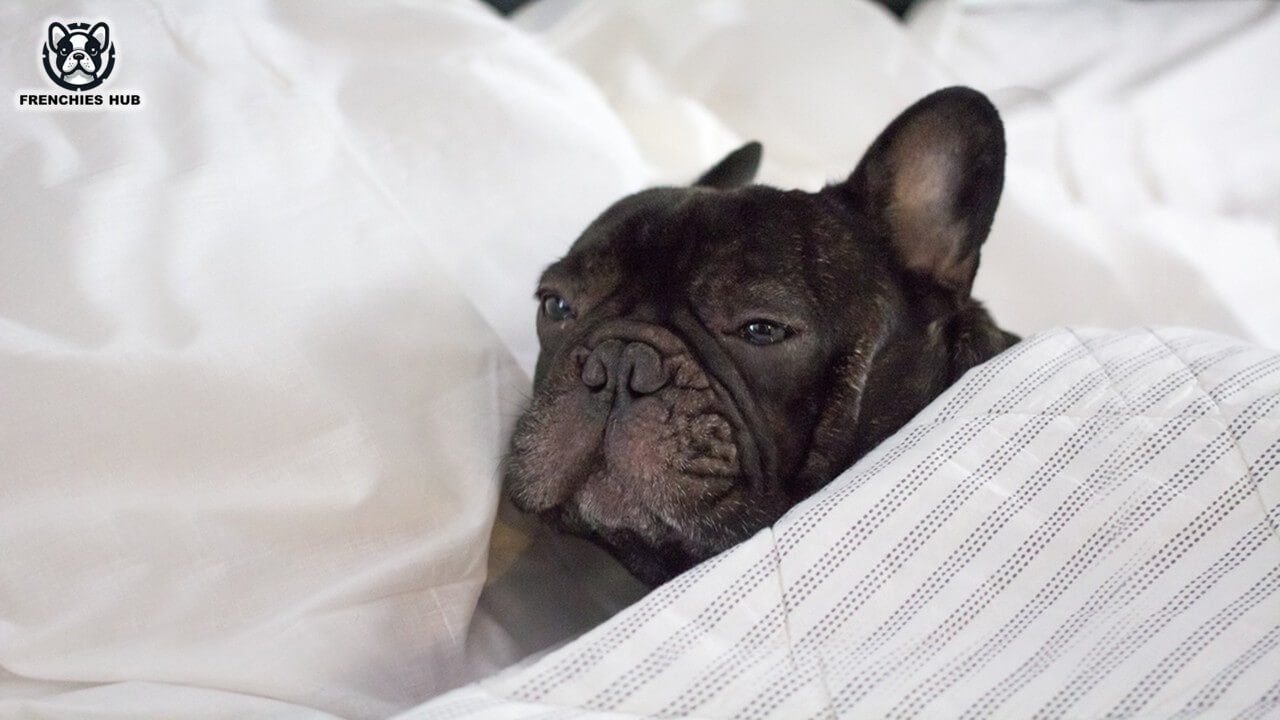When your French Bulldog starts throwing up, it’s a distressing moment for any pet owner. These small, yet charming companions are often too eager when it comes to consuming food, which can sometimes lead to digestive sensitivities. They’re unable to express their discomfort in ways we can easily understand, so it’s crucial for us to observe any signs of distress carefully. Identifying the possible reasons for their vomiting is as important as knowing the remedies. This guide is crafted to explore a wide range of tips that will help you provide the necessary care and comfort to your pet, ensuring they feel better soon.
Understanding and reacting to the health issues of a French Bulldog requires patience and attentiveness. The process of digestive recovery can be delicate, and every action we take must be aimed at reducing their discomfort. Whether it’s adjusting their diet, moderating the speed at which they consume their food, or simply being there to comfort them, each step is vital in their recovery.
Ensuring your French Bulldog recovers from a vomiting episode involves more than just a quick fix. It’s about holistic care, understanding the problem, and applying the right remedies. By closely observing your dog and responding to their needs, you’re not just helping them feel better; you’re also strengthening the bond between you. This guide aims to empower you with knowledge and tips to confidently care for your furry friend during these distressing times.
Understanding Why Your French Bulldog Is Vomiting
Navigating the journey of pet ownership, particularly with French Bulldogs, involves understanding the nuances of their health, including the reasons behind vomiting. My experience with these lovable companions has taught me the importance of identifying the root causes to effectively provide relief.
Decoding Dietary Discrepancies
At the forefront of vomiting incidents is Dietary Indiscretion. Our French Bulldogs may indulge in trash, scraps, or plants, deviating from their regular diet and causing irritation to their stomach lining. This behavior underscores their curiosity but also highlights the need for us to closely monitor their dietary environment to prevent such mishaps.
Transitioning Diets with Care
Another common trigger for vomiting is a Sudden change in diet. The sensitive stomachs of French Bulldogs do not react well to abrupt dietary shifts. A new food or brand can unsettle their digestive balance, necessitating a slow and thoughtful transition to new diets to avoid gastrointestinal upset.
Combatting Infections
Vomiting can also signal the presence of Infections—Viral, bacterial, or parasitic. These infections irritate the stomach lining, prompting the body to expel the invaders. Recognizing and treating these infections early can prevent further discomfort and health complications.
Identifying and Managing Allergies
Allergies to certain foods or environmental factors present another challenge, leading to vomiting alongside skin irritation, itching, and diarrhea. Understanding and avoiding these allergens is key to managing your bulldog’s health.
Curbing Curiosity: Foreign Object Ingestion
The innate curiosity of French Bulldogs can lead them to consume Foreign Objects such as clothing and toys, causing digestive tract blockage or irritation. Vigilance in keeping hazardous items out of reach is essential to prevent these dangerous scenarios.
Heatstroke Hazards
Lastly, the brachycephalic nature of French Bulldogs, characterized by short noses, makes them susceptible to Heatstroke. This condition can manifest through vomiting, lethargy, and drooling, underscoring the need for careful monitoring in hot conditions to ensure their safety.
Essential Care for French Bulldogs After Vomiting
Caring for a French bulldog following an unfortunate vomiting incident involves a thoughtful blend of immediate action, gradual reintroduction of diet, and ensuring a peaceful recovery environment. Drawing upon both extensive personal experiences and accumulated veterinary knowledge, this guide aims to offer an in-depth perspective on navigating these delicate situations with compassion and understanding.
Initial Steps: Withholding Food and Water
When confronted with the sight of your French bulldog vomiting, it’s essential to initially withhold food and water for several hours. This critical first step allows the stomach a chance to recover, reducing further irritation and the risk of dehydration. It’s a delicate balance, as French Bulldogs are prone to dehydration, yet giving their digestive systems time to rest is paramount. Monitoring your pet closely during this fasting period, ensuring they remain comfortable and calm, is as crucial as the dietary restriction itself.
Nutritional Management: Gradually Reintroducing Food
Subsequently, reintroducing food in a controlled manner is the next phase of care. Opting for a bland diet comprising easily digestible foods like boiled chicken and boiled rice—served plain, without seasoning—helps gently reintroduce nutrients without overwhelming the stomach. This gradual reintroduction should be executed with care, starting with small portions and closely observing your dog’s reaction to each meal. This meticulous approach not only aids in stabilizing the digestive system but also in identifying any potential food sensitivities or allergies that may have contributed to the initial vomiting episode.
Ensuring Adequate Hydration: Monitoring Water Intake
Maintaining optimal hydration levels is crucial, especially considering the significant fluid loss that can accompany vomiting. Continuous access to fresh and clean water, along with gentle encouragement to drink, helps prevent dehydration. In this phase, monitoring your bulldog’s hydration status involves not just ensuring they have water available, but also watching for signs of dehydration such as dry gums and lethargy. Encouraging small, frequent sips of water can help gradually rehydrate your pet without causing additional stomach upset.
Creating a Restful Recovery Space: Ensuring Rest and Calm
The importance of rest in the recovery process cannot be overstated. Providing a comfortable and calm environment—a quiet, cozy space free from disturbances—facilitates relaxation and recuperation. This environment should mimic a sanctuary, where your French Bulldog can feel safe and supported as they heal. Soft bedding, limited noise, and minimal stress factors contribute significantly to a conducive recovery atmosphere, enabling your pet to focus entirely on healing.
Dietary Considerations and Health Monitoring: Avoiding Complications
While it might be tempting to indulge your Frenchie’s pleading eyes with treats and table scraps, maintaining a strict bland diet is critical to avoid further upset stomach. This period of dietary discipline is crucial for allowing the digestive system to fully recover. Additionally, incorporating digestive enzymes and probiotics—upon consultation with your vet—can significantly enhance gut health, aiding in digestion and potentially mitigating future digestive issues. Throughout this period, vigilant monitoring of your pet’s overall behavior and well-being is essential. Immediate consultation with a vet is advised should vomiting persist or if any additional symptoms arise, ensuring prompt identification and treatment of any underlying conditions.
Transition Back to Normalcy: Diet and Professional Care
As your French bulldog begins to show signs of improvement, a cautious and gradual transition back to their regular diet is advised. This transition should be carefully managed to avoid any sudden changes that could reignite digestive sensitivities. Finally, if recovery stalls or complications develop, seeking professional veterinary care is imperative. A thorough vet examination can uncover any underlying issues, providing a clear path towards treatment and recovery.
Conclusion
Witnessing your French Bulldog vomit can indeed be a worrying experience. Yet, through right care and dedicated attention, guiding them back to wellness is entirely achievable. The journey to making them feel better begins with a deep understanding of the causes behind their discomfort. Providing appropriate dietary adjustments, monitoring their hydration, and offering a calm environment are foundational steps in offering comfort to your furry companion during their recovery phase.
Should the issue persists or if any concerns arise about your pet’s health, consulting a veterinarian for expert guidance becomes indispensable. Such professional advice will be tailored to meet your French Bulldog’s specific needs, ensuring a recovery path that’s as smooth and swift as possible. By embracing these essential tips with care and empathy, you stand in a strong position to support your beloved pet through their recuperation, reinforcing the bond you share.

